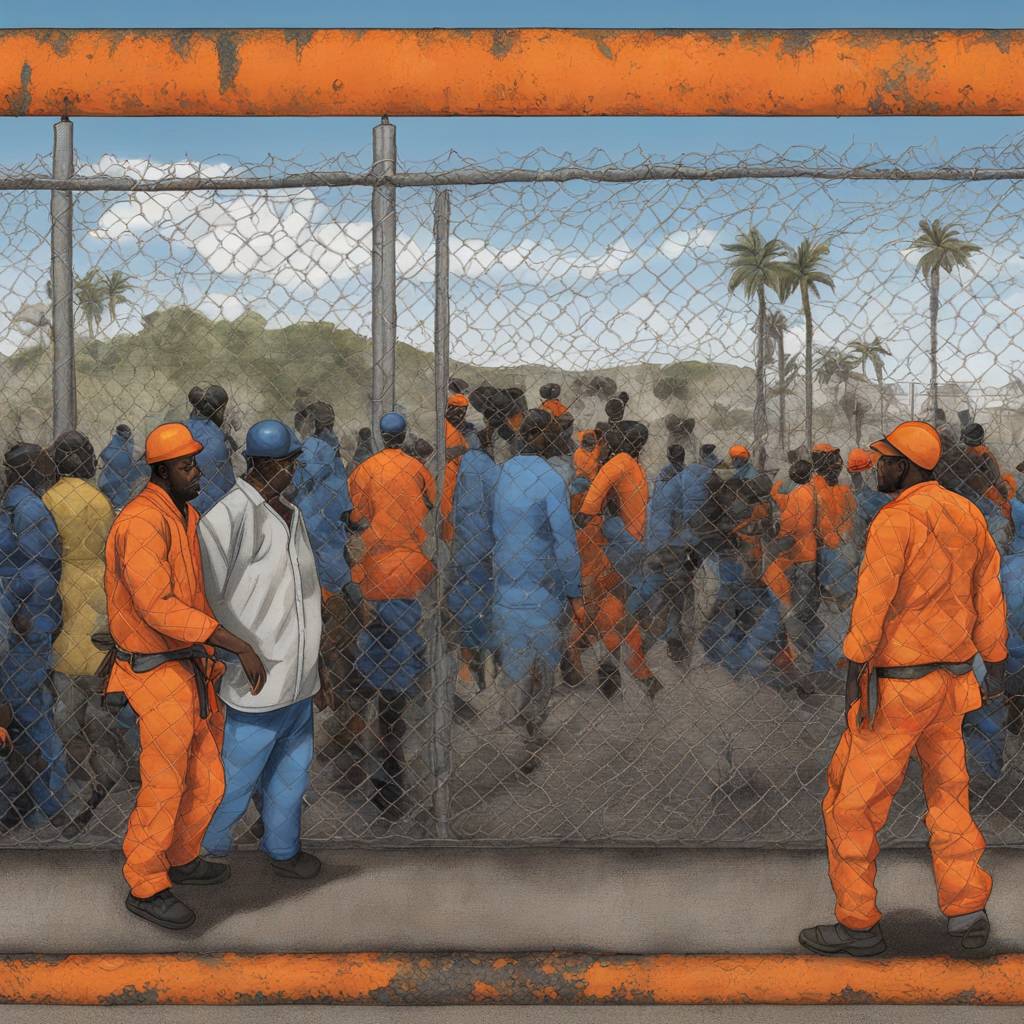In March, during a period of increased gang violence in Haiti, the United States announced that Haitian refugees fleeing for their lives would not be welcomed on US shores. Instead, preparations were being made to divert potential refugees to the naval base at Guantanamo Bay in Cuba. The base, known for its illegal prison and torture center, would be used as a processing facility for intercepted Haitian refugees. This plan, considered a racialized carceral undertaking, has been used before to block Haitian refugees from entering the US.
Haitians were first detained at Guantanamo Bay in the 1990s following the US-backed military coup against President Jean-Bertrand Aristide. Thousands of refugees were indefinitely detained at the naval base as they attempted to flee Haiti. In 2010, Guantanamo Bay was once again designated as a potential holding facility for Haitian refugees following a devastating earthquake that killed over 200,000 people. A maritime exodus was predicted, but did not occur, leading to the deployment of a US Air Force cargo plane to discourage refugees from attempting to leave the country.
US policies towards Haitian refugees have been met with criticism, especially considering the historical context of US intervention in Haiti. From forcibly taking half of the nation’s gold reserves in the early 1900s to supporting brutal dictators like the Duvaliers in later decades, the US has played a significant role in destabilizing Haiti. Additionally, the US has fueled both physical and economic violence in Haiti, contributing to the current gang brutality that has displaced thousands and left many homeless.
The ongoing humanitarian crisis in Haiti, exacerbated by US intervention and support of oppressive regimes, has made the country unlivable for many. Most firearms and ammunition in Haiti come from the US, highlighting the interconnectedness of violence between the two countries. Furthermore, the US has also obstructed efforts to increase the minimum wage for Haitian workers, perpetuating economic hardship. The continued role of the US in destabilizing Haiti makes the current Guantanamo Bay contingency plan all the more alarming.
The potential repeat of history in detaining Haitian refugees at Guantanamo Bay raises ethical and legal concerns about the treatment of asylum seekers. The US’s refusal to provide safe haven for those fleeing violence and poverty in Haiti is seen as a continuation of imperialist policies that have long plagued the country. While the outcome of the current situation remains uncertain, the hypocrisy of US foreign policy towards Haiti is evident. There is a call for an end to imperialist practices and a more humane approach towards refugees in need.


